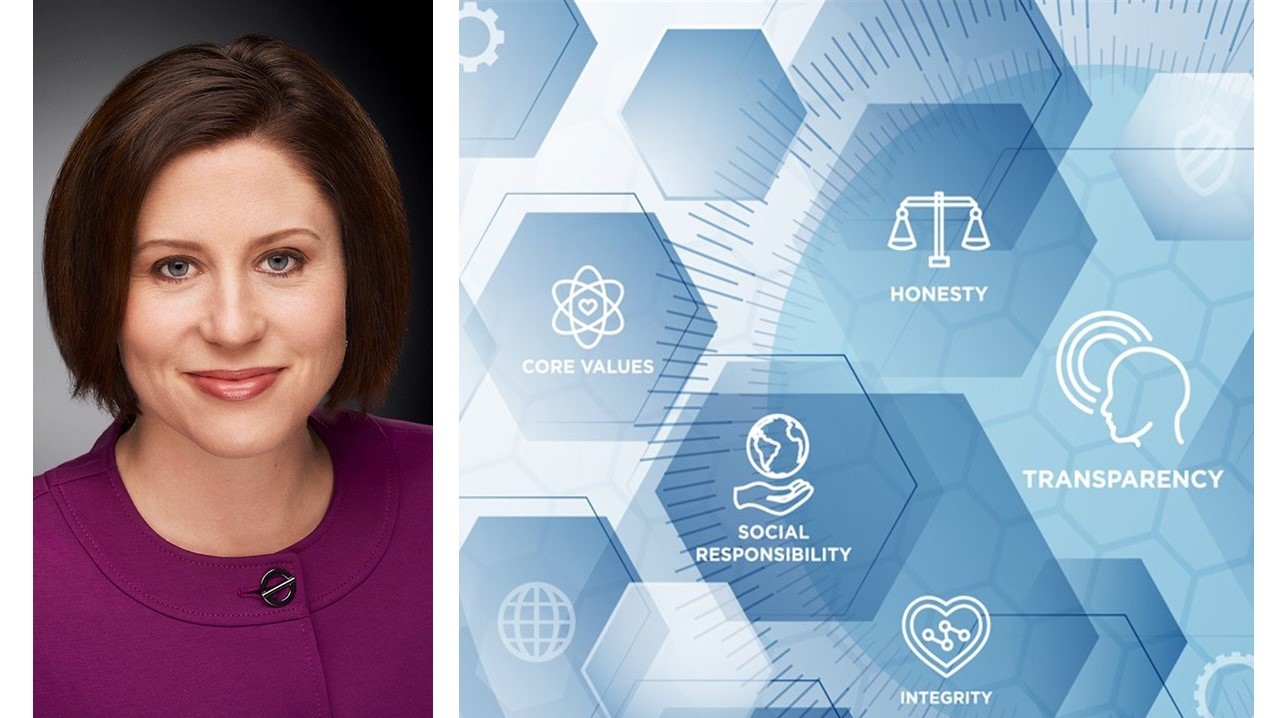
It’s particularly meaningful to me that my tenure as ICMA president overlaps with the 100th anniversary of the ICMA Code of Ethics. When I think back on my discussions with an early mentor about a career in local government management, those conversations invariably included ICMA membership and the importance of the Code for providing a foundation based on ethics. My mentor had a great deal of pride in the Code and helped me to understand that ethical local government management is the bedrock of our profession and our democracy.
Applicable to Every Career Stage
I have always kept a copy of the ICMA Code of Ethics on the wall in my office. It serves as a reminder to me that we are the stewards of democracy. Early in my career, I recall receiving significant pressure from a land use developer to provide incentives without due process, which made me uncomfortable. I walked back to my office and reflected on our profession’s principles in the Code. It reinforced that my decision needed to be about doing what was right for the entire community—for all the people and not just a few.
As I advanced in my career, I went from applying the Code to specific programs that I managed to now relying on the Code to support my board effectively and deliver on my role in successfully managing operations and supporting staff.
A Living Document
Essentially, the underlying values of the Code are inherent in all of the services we perform for our community. If you take a look at the interactive timeline at icma.org/ethics-timeline, you’ll find that since the Code’s adoption in 1924, its core meaning has never changed. What you will observe is the history of a living document—one that is still being reviewed and considered by members to this very day and will be for the next century.
In 1969, for example, the language changed from “city manager” to “member” to include county managers as well. You will find revisions to the guidelines—for instance in 2002, the Tenet 7 guidelines were amended to clarify that members shall not run for elected office or engage in other political activity. What you will not find are changes to the core values of this noble profession.
Where other professional codes may have failed over the years, the ICMA Code of Ethics continues to thrive and serve as a beacon for members and others in local government looking for guidance. This can be attributed to the unwavering commitment of our members. As the ICMA constitution describes, the Code cannot be changed without robust conversation among members, and members must then vote to approve any revisions.
Ongoing Review
The longevity of the Code can in part be attributed to the way it is structured. The 12 tenets define the principles of the profession while the guidelines help members understand how to meet those principles. Revisions reflect changes in the profession and society, keeping the Code relevant and accessible. For example, social media didn’t really exist 30 years ago and now it is a dominant form of communication and connection, so the guidelines may be updated to incorporate this societal shift. It remains a priority for the association to ensure that the language and guidelines continue to make sense while staying true to our ideals.
The association also reviews other aspects of the Code. For example, ICMA membership requires a signed commitment to adhere to the Code of Ethics upon joining and renewing. I encourage all our 13,000 members to make time in your busy schedules to read it. Creating awareness doesn’t stop there. While the website is one communication channel that is updated regularly, information regarding the Code and stories shared by members can also be found in education sessions, training presentations, PM Magazine, ICMA newsletters, and on social media. Workshops, webinars, and online classes are also available to members and their staff.
The ethics enforcement process, which commences when ICMA receives a complaint with documentation that alleges a member’s conduct may have violated the Code, is governed by Rules of Procedure and carried out by the Board’s Committee on Professional Conduct. The Board periodically assesses these procedures to ensure that the process works and remains relevant. Educational efforts and creating awareness of how this process works is a priority as well.
A Personal Connection
One of the things I treasure most about my position on the ICMA Executive Board is connecting with students and others considering a career in local government management. While the volume of these interactions has increased significantly since becoming president, the content of our discussions is always enlightening. I have the privilege of learning about the journeys of individuals interested in our profession—how they were drawn to public service and specifically to local government. It also gives me the chance to tell them about the ICMA Code of Ethics, just as my mentors shared with me.
It’s thrilling to encounter people who light up when they understand that ours is a nonpartisan role. Our duty is to carry out the policies of the body elected by the people, and this is a principal reason that many are attracted to the profession. I have also spoken with people considering a career in professional management who, once they understand our tenets, like impartiality and policy execution, they determine they would rather serve as an elected official because they so fiercely believe in a partisan policy platform.
It’s through those conversations that my own commitment to our profession is reinforced, and that’s why I encourage members to mentor someone new to the profession. Many individuals come to city, county, and town management directly from graduate school, but they might as easily be veterans on their second career, or elected officials wanting to make a change. It’s a wonderful chance to highlight our profession’s values. Mentoring a colleague is another way to celebrate your commitment to the Code. Have a courageous conversation if you spot a potential ethics issue. We are all learning together and working to be the best we can be.
Keep Celebrating
As the Code’s first 100 years come to a close, we have the opportunity to live our vision moving into the next 100 years. As we model the Code in how we conduct ourselves, we inspire others who see us living it every day—being that steward of democracy, focusing not on one individual but on the good of the whole.
Another way to keep the celebration going is to connect with fellow members and prospective members. Through these encounters I learn more about my own values and story. We have all had experiences where it is just not possible to talk to someone in our community about an ethical issue. By picking up the phone, you can ask someone, well out of your jurisdictional boundaries, for their perspective, and in turn you can lend your experience to help someone in another community who may be struggling.
It’s rare that I am asked to do something that may not be ethically sound. When it happens, it always puts me in a position to reaffirm my commitment to the Code. I find that I gain the respect of those who may have challenged me, and it creates a positive effect that can impact the organization’s culture. I have learned that by staying focused on the why of what we do and by being purpose-driven we can create our own future. And that’s truly something to celebrate.

TANYA ANGE is county administrator of Washington County, Oregon, USA, and ICMA president (2024–2025).
New, Reduced Membership Dues
A new, reduced dues rate is available for CAOs/ACAOs, along with additional discounts for those in smaller communities, has been implemented. Learn more and be sure to join or renew today!
